
The accompanying scientific project “Begründungs- und Bewertungsmaßstäbe für Robotik in der Pflege” (BeBeRobot) examines the possibilities and limits of robotic support in an interdisciplinary manner from a technical, nursing, social science and ethical perspective. Affected stakeholder groups, care providers and all collaborative projects of the announcement “Robotic Systems for Care” will be involved in this work. Through close cooperation with the collaborative projects, overarching experiences and findings in the development and testing of robotics for care will be compiled and evaluated with a view to a technically and socially justifiable use.
Project partners

Universität Osnabrück
With approximately 14,000 students and 1,800 employees, the University of Osnabrück is a lively, research-intensive and quality-conscious university with a broadly diversified, academically sound range of courses. Harmoniously embedded in the city of peace Osnabrück, it has positioned itself, founded in 1974, as a medium-sized German university and has adjusted to the competition for the best minds and sufficient financial resources.
For more than ten years, the Department of Nursing Science in the Institute of Health Research and Education has been concerned, among other things, with the development, testing, and evaluation of new technologies in nursing, with questions of integrating technical innovations into the work processes of nursing, and with corresponding theoretical and ethical challenges related to the use of new technologies in nursing. In this context, numerous relevant third-party-funded projects have been carried out and scientific reports have been prepared for the German Bundestag and the Federal Ministry of Health, among others.
Work and research focus in BeBeRobot
The Department of Nursing Science at the University of Osnabrück is responsible for the coordination of the scientific accompanying project BeBeRobot and coordinates the cooperation of the accompanying project with the joint projects of the funding line “Robotic Systems for Nursing”. The scientific work objectives of the subproject are aimed at a) developing (nursing) theoretical and empirical justifications for the use of robotic systems in nursing care, b) developing, in close cooperation with the project partners, a (nursing) theoretical, ethical as well as empirical framework for the use of robotic systems in nursing care, (nursing) ethics and empirical criteria for the application-oriented evaluation of robotic systems for nursing, and c) to transform this into a pragmatically manageable evaluation tool for the needs-based development, field-specific application and institutionally appropriate framing of the use of robotics in nursing.
Project Team
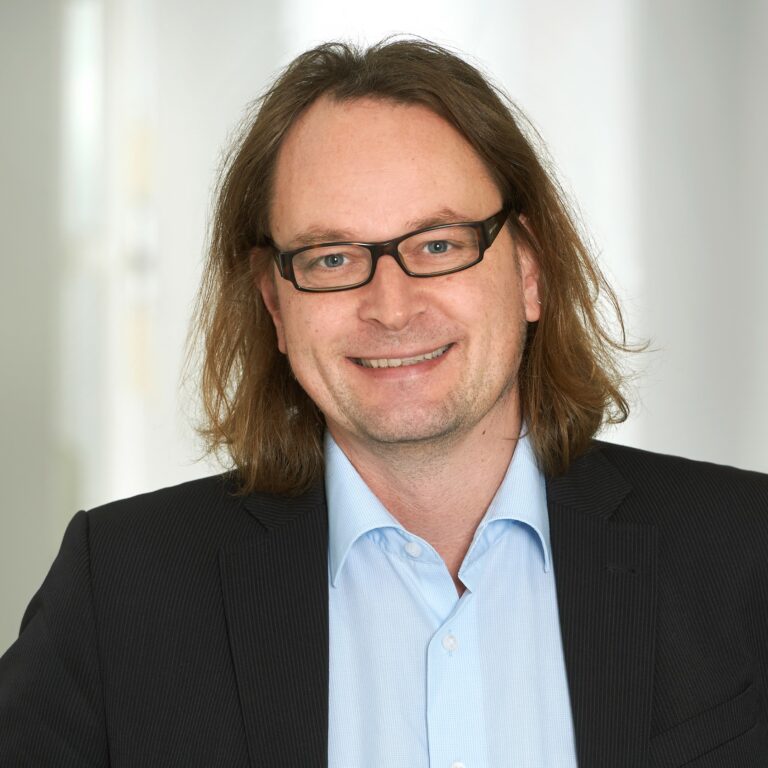
Prof. Dr. Manfred Hülsken-Giesler
Manfred Hülsken-Giesler has headed the Department of Nursing Science at the University of Osnabrück since January 2019. Previously, he was Professor of ‘Community-based Nursing’ at the Faculty of Nursing Science at the Philosophical-Theological University of Vallendar. His work and research focuses on ‘New technologies in health and nursing’, ‘Future research in nursing and health’, ‘Higher education in health and nursing’ and ‘Basic research in nursing science’. Hülsken-Giesler is a member of the expert commission for the preparation of the Eighth Ageing Report of the German Federal Government on the topic of ‘Older People and Digitization’, a member of the expert advisory board ‘Learning Systems – The Platform for Artificial Intelligence’ of the German Academy of Science and Engineering (acatech), and a trustee of the Kuratorium Deutsche Altershilfe. He served as speaker of the section “Development and Consequences of Technology and Informatics in Care” (2010-2015) of the German Society for Nursing Science and many times as an expert and scientific advisor for federal ministries, foundations and relevant research projects.
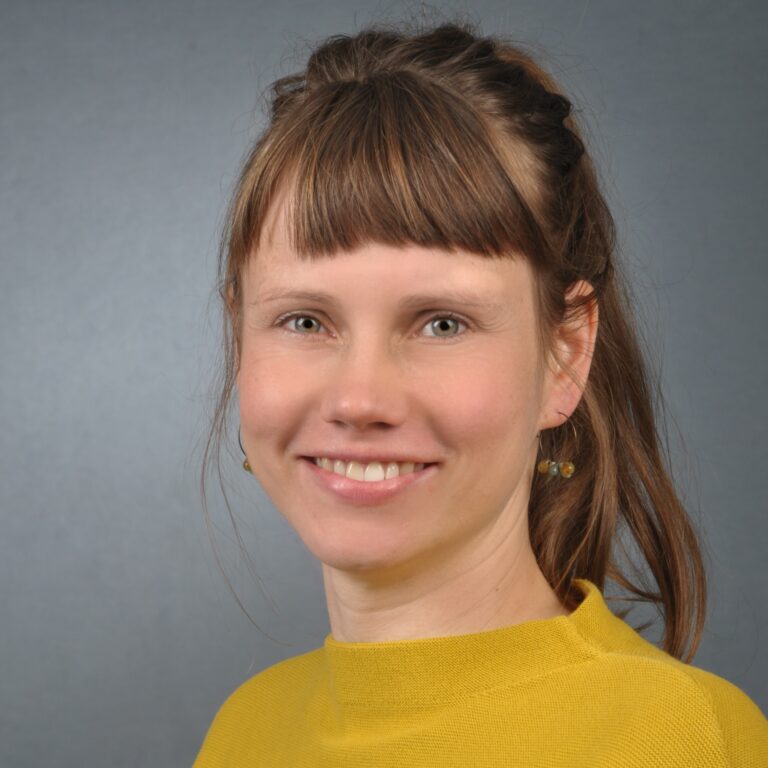
Katharina Handke
Katharina Handke is a registered nurse and nursing scientist. She studied nursing science at the Osnabrück University of Applied Sciences and at the University of Witten/Herdecke. Since 2015, she has been working as a research assistant in research projects on ‘Family Health in the Life Course’ and ‘Robotic Systems for Nursing’.
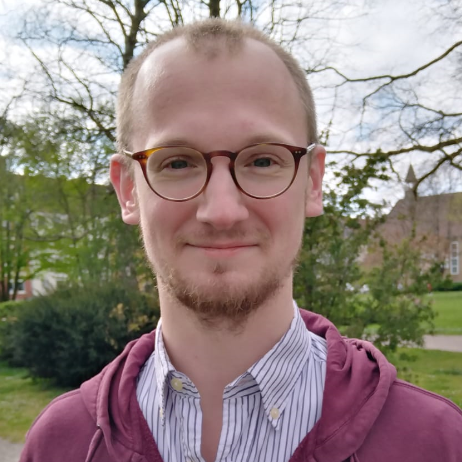
Jonathan Behrens
Jonathan Behrens is a registered nurse and nursing scientist. He graduated from the University of Osnabrück with a Bachelor’s degree in Vocational Education and is currently in the final phase of his Master’s degree Master Of Education, also at the University of Osnabrück. Since December 2019, he has been working as a research assistant in the Department of Nursing Science in research projects on the topic of ‘Robotic Systems for Nursing’.
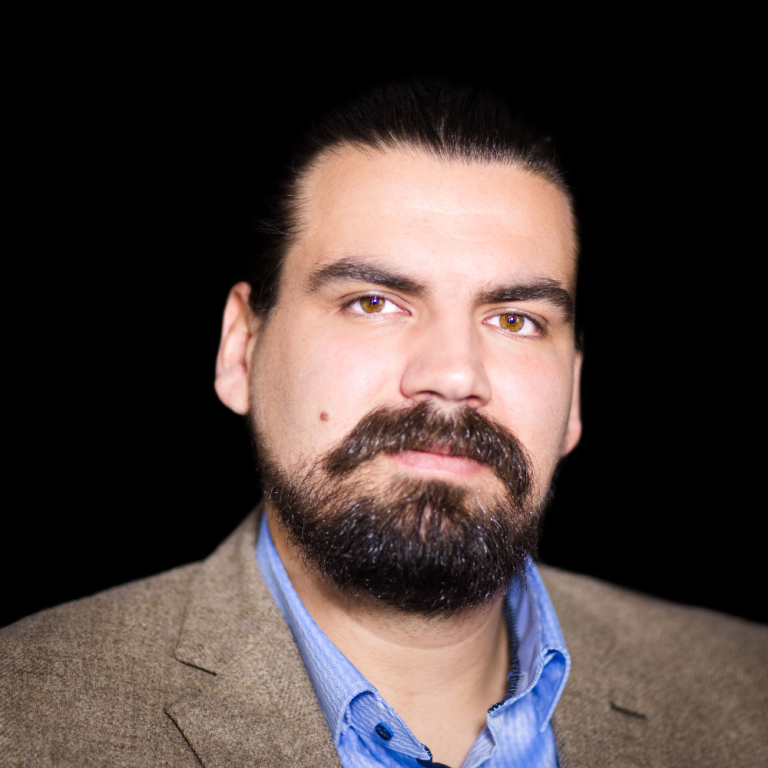
Dominic Seefeldt
Dominic Seefeldt is a research associate at the Department of Nursing Science at the University of Osnabrück in the projects BeBeRobot, AdaMeKoR, and MORPHIA. Previously, he was a project manager at Foresight Intelligence, helping ministries and organizations with structured communication about the future. From 2012 to 2017, he worked in the Department of Nursing Science at the University of Osnabrück and at the Chair of Community Care at the Philosophical-Theological University of Vallendar. He holds a degree in communication science and philosophy. As such, he is interested in human perception and action and how to talk about them.
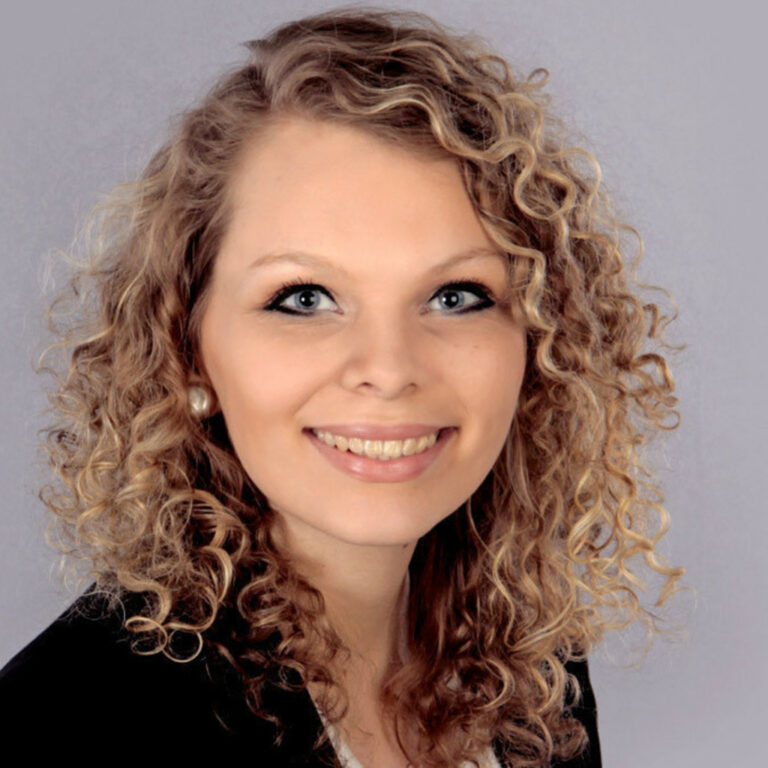
Simone Lienenbrink
Simone Lienenbrink is a health scientist. She studied Public Health at the University of Bielefeld. Since October 2020, she has been a research associate in the BeBeRobot project at the Department of Nursing Science at the University of Osnabrück. Previously, she worked as a research assistant in a research project on “competence development of health professionals” at the University of Osnabrück.
Contact
Prof. Dr. Manfred Hülsken-Giesler
- Department of Nursing Science, Institute for Health Research and Education (IGB)
- Universität Osnabrück
- Barbarastr. 22c 49069 Osnabrück
- +49 (0) 541 969-2467
- manfred.huelsken-giesler@uni-osnabrueck.de
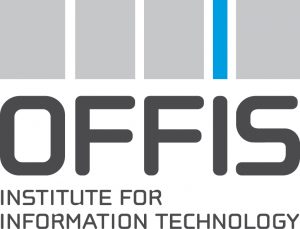
OFFIS Institut für Informatik e.V.
OFFIS – Institute for Computer Science in Oldenburg was founded in 1991 and, as an affiliated institute of the University of Oldenburg, researches new forms of computer-based information processing in hardware and software systems and translates the results into application-oriented developments. OFFIS has been working in the field of health for many years, especially on the support of independence and health in everyday life (especially at home). OFFIS coordinates the German Care Innovation Center, funded by the BMBF, which brings together research on technology development for care, needs analysis in care practice, evaluation of new technologies, and skills development and reflection on ethics and responsibility.
Work and research focus in BeBeRobot
The focus of OFFIS work in BeBeRobot is the conception, implementation and support of the digital platform to support the exchange of information between the collaborative projects of the funding line as well as the support of the projects in the dissemination of results. Research focuses on sensor requirements for the use of robotics in care, the suitability of virtual reality technologies for the evaluation of robotics applications, and data protection and interoperability requirements.
Project Team
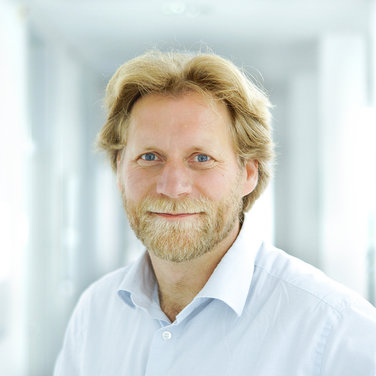
Prof. Dr. Andreas Hein
Prof. Dr.-Ing. Andreas Hein was a full professor at the Institute of Computer Science at the University of Oldenburg from 2003 to 2013. Since 2008, he has been the divisional board spokesperson of the OFFIS R&D area Health and a member of the OFFIS board since 2012. In 2013, his group moved to the newly founded Faculty of Medicine and Health Sciences, Department of Assistance Systems and Medical Technology at the University of Oldenburg. His research interests include the design of cooperative assistance systems for medical and home care applications, image acquisition and reconstruction, and robotic assistance systems for surgery and nursing. Mr. Hein is a member of the German government’s expert commission “Digitalization and Ageing”, was or is coordinator of the research network GAL – Gestaltung Altersgerechter Lebenswelten (State of Lower Saxony, 2008-2013) and the Care Innovation Center, is director of the Department of Health Services Research at the University of Oldenburg, and is chair of the Ethics and Research Impact Assessment Committee of the University of Oldenburg. In 2018, he was appointed to the expert commission for the German government’s report on aging.
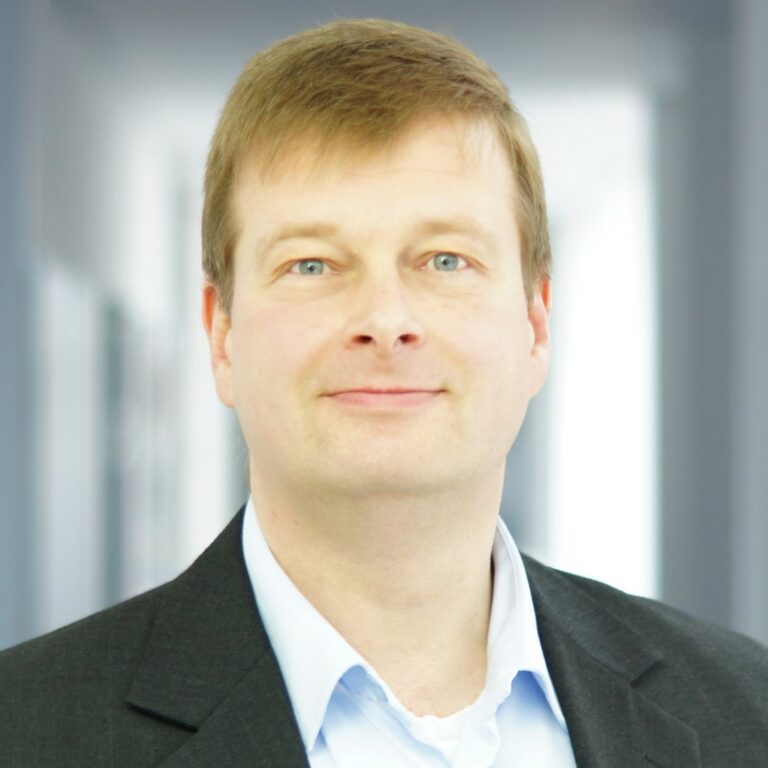
Dr. Marco Eichelberg
Dr. Marco Eichelberg is head of the group “Automation and Integration Technology” (AIT) in the OFFIS R&D area Health, which has been working on the development, testing and evaluation of assistive technologies for physicians, caregivers and patients, especially elderly people in the home environment, for about 15 years.
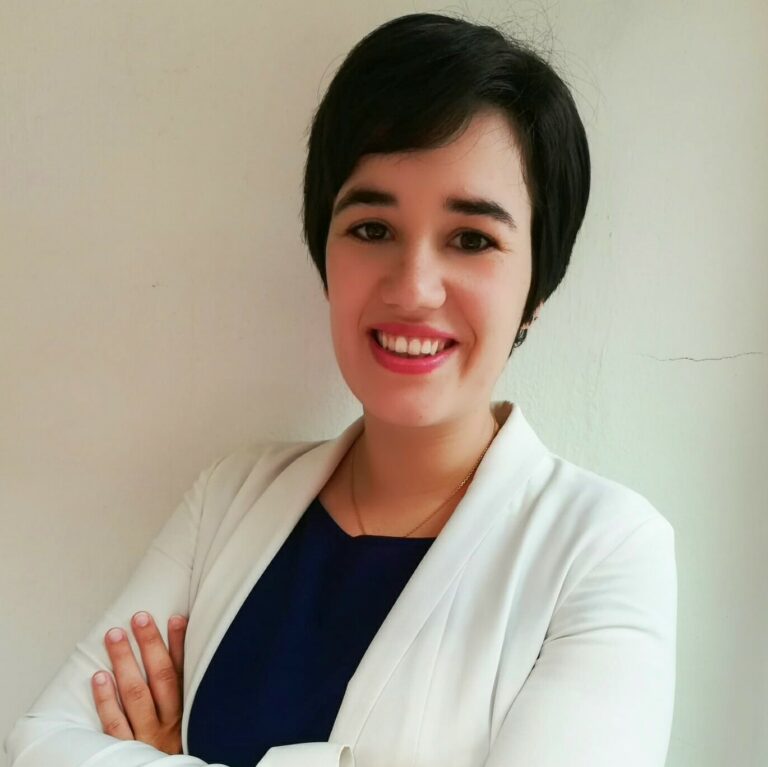
Celia Nieto Agraz
Celia Nieto Agraz studied industrial engineering (Bachelor+Master) in Madrid. From September 2019 to March 2020, she worked as an intern at OFFIS in several robotics projects: Implementation of a mobile robot for telecare and deployment of a robotic arm (Franka Panda) to support caregivers. She is currently working at OFFIS as a research assistant in the field of health.
Contact
Dr. Marco Eichelberg
- Group Manager Automation and Integration Technology
- OFFIS e.V. - Institut für Informatik, FuE Bereich Gesundheit | R&D Division Health
- Escherweg 2 - 26121 Oldenburg - Germany
- +49 441 9722-147
- +49 441 9722-111
- eichelberg@offis.de

Universität Siegen
With just under 20,000 students, approximately 1,300 scientists and 700 employees in technology and administration, the University of Siegen is an innovative and interdisciplinary university. With a broad spectrum of subjects ranging from the humanities and social sciences to economics, natural sciences and engineering, it offers an excellent teaching and research environment with numerous inter- and transdisciplinary research projects.”
The research group “IT for the Aging Society” at the University of Siegen, led by Jun.-Prof. Dr. Claudia Müller, pursues a socio-informatic perspective on IT design in the “Health & Aging” field. Claudia Müller is co-founder of the Siegen PraxLabs, a specific form of the Living Lab method based on praxeological and participatory design principles that provide a platform for local, long-term collaborations between all stakeholder groups involved in an IT development process. The approach is also directed at fostering experiential learning as a basis for developing co-design skills and competencies, but also for fostering positive attitudes towards new technologies among older/technology-averse people and addressing stereotypical ideas and (self-)images in the context of technology use. The establishment, maintenance and reflection of shared spaces for visioning and technology appropriation serves as an environment for Participatory Design processes and has now been tested and continuously validated in several projects.”
Work and research focus in BeBeRobot
The scientific and technical work objectives of the sub-project are aimed at making established methods, tools and processes of practice-based and participatory user research in applied informatics, as conceived by socio-informatics, among others, fruitful for the present project proposal and to further develop them in the sense of a stronger interdisciplinary anchoring with research in nursing science. Thus, the socio-informatics accompanying project makes an important integrative contribution for the applied technical sciences to empirically and creatively substantiate the intended lines of reasoning to be developed, the catalog of criteria as well as the evaluation tool for a demand-oriented development and field of action-specific application of the use of robotics in nursing.
Project Team
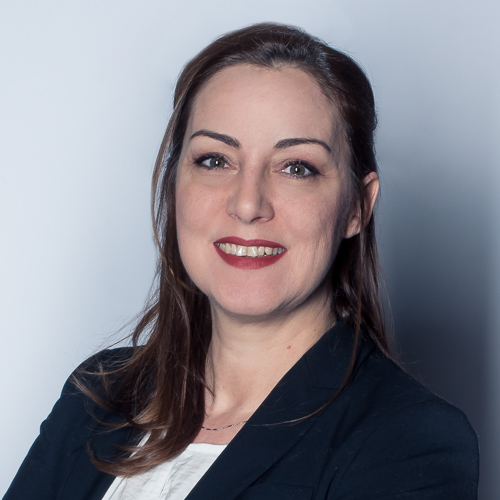
Jun.-Prof. Dr. Claudia Müller
Claudia Müller heads the area of “IT for the aging society” at the University of Siegen and is also a professor in the research program at the Kalaidos University of Applied Sciences Health in Zurich. As a socioinformatician, she pursues praxeological and participatory approaches in human- and practice-oriented IT design. She researches community, ICT and sensor technologies to promote social participation and empowerment and the promotion of digital literacy and empowerment for co-design for older research participants* in the research fields of health & aging, care support, neighborhood informatics & “smart village”/digitization in rural areas.
C. Müller is deputy chair of the expert commission of the Eighth Ageing Report “Older People and Digitization” of the Federal Government of Germany, deputy spokesperson of the Department of Human-Computer Interaction at the German Informatics Society, deputy chair of the expert committee “Education and Digitalization” at the German Informatics Society. She is deputy chairwoman of the BMFSFJ’s expert committee on “Education and Digitization in Old Age” and co-speaker of the expert committee on “Age and Technology” of the German Gerontology and Geriatrics Society (DGGG).
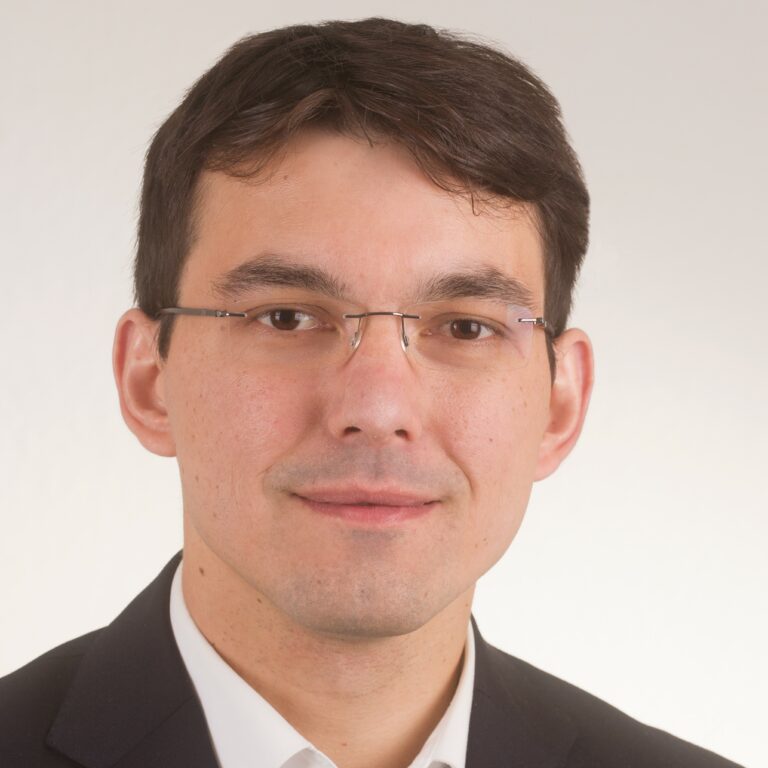
Richard Paluch
Richard Paluch studied Slavic Studies and Social Sciences at the Carl von Ossietzky University Oldenburg (2008-2014). He was a research associate at the Fraunhofer Institute for Digital Media Technology IDMT (2013-2014) and at the Hörzentrum Oldenburg GmbH (2014-2018). He was also a scholarship holder of the Evangelisches Studienwerk Villigst in the doctoral program Dimensions of Concern (2015-2020) and held a lectureship in Sociology in the Media Business and Journalism program at the Jade University of Applied Sciences Wilhelmshaven (2017-2020). He is currently employed by Jun.-Prof. Dr. Claudia Müller in the project “Be+BeRobot – Justification and Evaluation Measures of Robotics for Care”.
Contact
Jun- Prof. Dr. Claudia Müller
- Junior Professorship IT for the Aging Society
- Universität Siegen
- Adolf-Reichwein-Straße 2, 57076 Siegen, Raum: US-F 115
- +49 (0) 271/ 740 – 4076
- claudia.mueller@uni-siegen.de
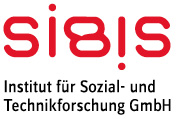
SIBIS Institut für Sozial- und Technikforschung GmbH, Berlin
The SIBIS Institute specializes in the study of technology-based innovations and digital services, the acceptance of technology users, the application testing of technologies and the study of the impact of innovative technologies. Here, there is a specialization in the application fields “health and care”, “therapy and rehab” “support in private households”, as well as “outpatient care”. The SIBIS Institute represents the concept of application-oriented research and uses the entire range of methods of empirical social research (quantitative and qualitative methods, ethnographic procedures, observational studies, impact analyses, etc.). The concerns of the users, their participation in research processes as well as their protection in tests and application trials are central. Through its research and consulting activities, the SIBIS Institute contributes to ensuring that innovative technologies and digital services benefit the respective user groups, offer them individual added value, are easy to use and are optimally adapted to people’s needs and wishes.
SIBIS finances its activities exclusively through the acquisition of social science research funds and consulting services for institutions and national and international research consortia. Contract and grant sponsors include federal and state ministries, industrial and charitable enterprises, and foundations.
Work and research focus in BeBeRobot
The special focus of the SIBIS Institute within the project BeBeRobot is on the development of social science theories and methods with a special focus on robotic assistance systems in the context of age and care. The expertise of the institute will be used for the further development and testing of socio-scientific methods with regard to their applicability, usefulness and efficiency (evaluation of application tests). Of particular interest is the comparison of the effectiveness of the various methods used as well as the development of concepts for the cross-consortium project investigation of the application testing of the developed robotic assistance systems.
Project Team
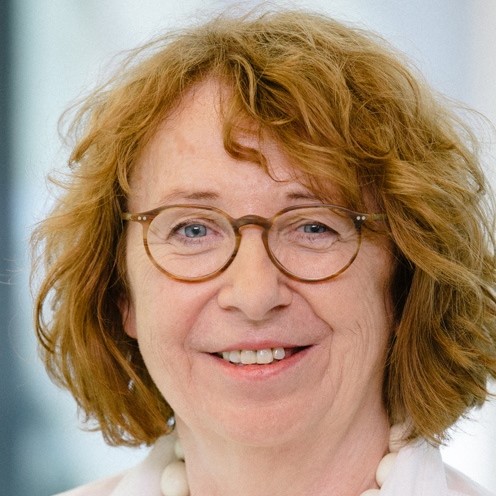
Dr. Sibylle Meyer
Mrs. Dr. phil. Dipl.-Soz. Sibylle Meyer is scientific director and managing director of SIBIS – Institut für Sozial- und Technikforschung GmbH in Berlin.
Dr. Sibylle Meyer specializes in innovation research from the user’s perspective in the application fields “assistance robotics for the elderly” “smart home” as well as “technical assistance systems”. She initiates research projects and conducts evaluation and user studies with her group on the use of robotic assistants in health, rehabilitation and care as well as on innovative technologies for the living of the future. She is an expert on human-technology interaction and its ethical and social implications of innovative technologies.
Dr. Meyer is a member of various different national and international advisory boards and expert commissions. She advises federal and state ministries, national and international associations, interdisciplinary project consortia, and industrial companies. International expert and lecturing activities. Member of the Expert Commission for the Eighth Report on the Elderly of the German Federal Government on the topic of “Digitization” Publication of numerous books, project reports and technical papers.

Christa Fricke
Dipl. Soz, MA, Christa Fricke is a Senior Expert at the SIBIS Institute for Social and Technical Research, Berlin. She specializes in empirical social research, especially for quantitative and qualitative research methods (observations, interviews, surveys). Her research fields include demographic change, the quality of life of older people, and the acceptance of innovations and technologies. Currently, she is involved in various research projects in the field of “human-technology interaction” and the question of how technical innovations can support the good life of older people.
Contact
Dr. Sibylle Meyer
- SIBIS Institut für Sozial- und Technikforschung GmbH, Berlin
- Stallupöner Allee 24, 14055 Berlin
- sm@sibis-berlin.de

Der Deutsche Caritasverband
The German Caritas Association (DCV) is the welfare organization of the Catholic Church in Germany. Around 659,875 people work in 24,780 facilities and services, including care for the sick, elderly and disabled. The German Caritas Association includes (as of 2016) more than 400 hospitals (101,000 beds and 216,000 employees), more than 1,000 outpatient care services (about 40,000 employees), almost 2,000 inpatient facilities for elderly care (about 130,000 places and 110,000 employees), 822 facilities for disabled care (about 42,000 places and 38,000 employees). In addition, there are over 800 day care facilities for the disabled (approx. 69,000 places and 28,000 employees). In addition, about half a million volunteers are involved. The DCV was founded in Cologne in 1897. The headquarters of the DCV is in Freiburg im Breisgau, the main representations are in Berlin and Brussels. The headquarters coordinates the association’s work as well as political representation and is committed to a just and solidary society.
Work and research focus in BeBeRobot
The German Caritas Association, as one of the six umbrella organizations of the Freie Wohlfahrtspflege in Germany, is a consortium partner in the scientific accompanying project BeBeRobot. Its task is to contribute the perspective of people in need of care, relatives, caregivers, and Caritas services and facilities for the sick, elderly, and disabled to the development of an ethical criteria catalog for the use of robotics in care. For this purpose, in a first step, literature research will be conducted within the Freie Wohlfahrtspflege on ethical instruments with regard to their systematic application in the associations as well as on association-specific digitization strategies. At a later point in time, experts from Caritas will be asked to critically accompany the development of the criteria catalog from a practical perspective and, if necessary, to test it.
Project Team
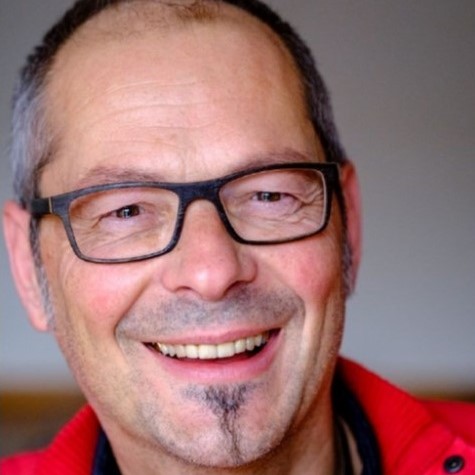
Thomas Hiemenz
Thomas Hiemenz, since 1994 consultant at the German Caritas Association with various fields of responsibility (hospice, home nursing, 2014-2016 project management “With us no one should die lonely”, open social work for the elderly), nurse, graduate theologian, 1993 -1994 scientific assistant at the KH Freiburg in the course of study nursing management and pedagogy, mediator and active in counseling and accompaniment and course work with a focus on body work and self-care.
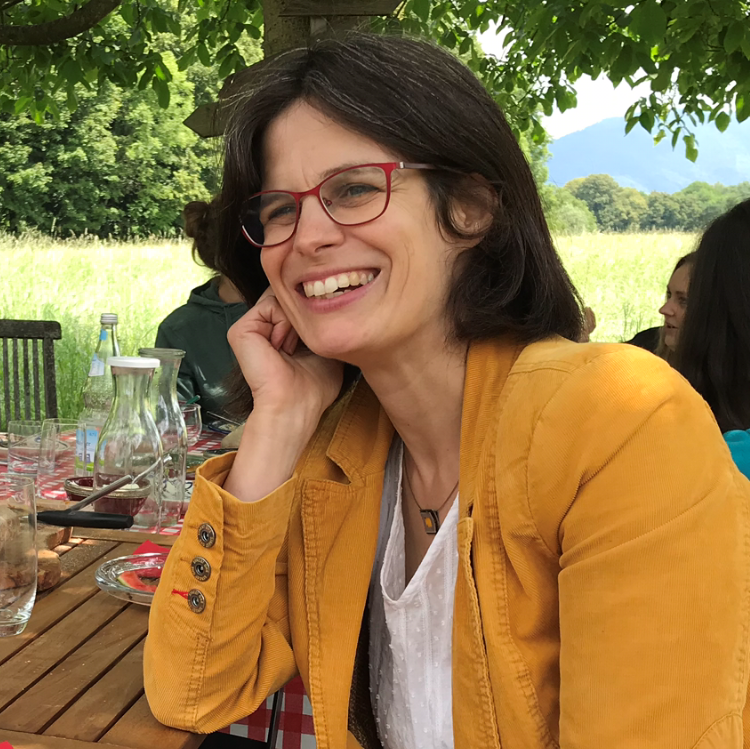
Heidrun Biedermann
Heidrun Biedermann, since 2006 consultant for elderly care at the German Caritas Association. 2004 -2006 research assistant at the University of Applied Sciences Bremen. Graduate sociologist with a focus on social management and social policy as well as empirical social research.
Contact
Thomas Hiemenz
- Project management BeBeRobot, Department of Participation and Health
- Deutscher Caritasverband
- Karlstr. 40 79104 Freiburg
- 0761/ 200 381
- 0761/ 200 192
- thomas.hiemenz@caritas.de
Heidrun Biedermann
- Project management BeBeRobot, Department of Participation and Health
- Deutscher Caritasverband
- Karlstr. 40 79104 Freiburg
- 0761/ 200 621
- 0761/ 200 192
- heidrun.biedermann@caritas.de
Contact at project management agency
Maxie Lutze
- VDI/VDE Innovation + Technik GmbH
- 030 310078-343
- Maxie.Lutze@vdivde-it.de
Project Link
More information about the project can be found here: https://www.technik-zum-menschen-bringen.de/projekte/beberobot